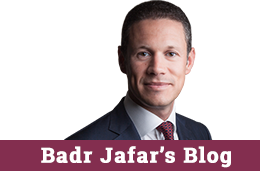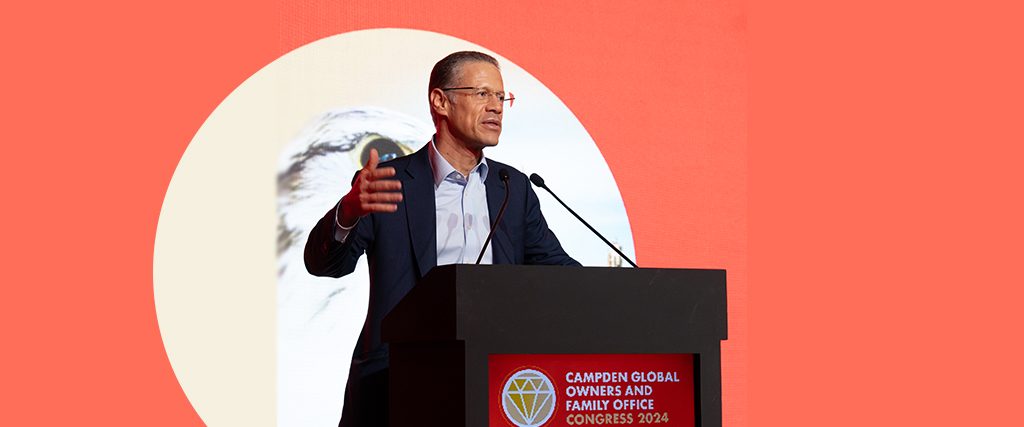Blowing Whistles and Trumpets In The Fight Against Corruption
Most members of the local business community would agree that corrupt and unethical practices must be stamped out wherever they are found.
However, are we using all of the tools at our disposal to achieve this?
It seems to me that we too often seek to import models of corporate governance and ethical practice without considering their compatibility with the Region’s social, cultural and economic traditions. As a result, we might tick the boxes but not get the outcome we are seeking. One example of this is whistleblowing.
The UK Government defines whistleblowing as “when a worker reports suspected wrongdoing at work” and makes “a disclosure in the public interest”. It relies upon the willingness of individuals, regardless of seniority, to speak out about the unethical behaviour of others. However, it is not a practice that always sits comfortably with our social practices and customs.
Like many countries in the Region, ours is a relationship-based society. The importance of personal relationships permeates daily interactions with our family, friends, colleagues and the community. It is one of our society’s greatest strengths but, at the same time, we must acknowledge that it discourages the negative reporting on others that whistleblowing relies upon.
The short history of whistleblowing in the Region is evident in other ways. According to a report published by law firm DLA Piper in January 2014, many countries in the Middle East do not yet offer the same legal protections for whistleblowers that are available in other jurisdictions. In fact, an article from Deloitte last year on whistleblowing in the Region noted that in certain instances in the past whistleblowers themselves have been the ones penalized. This perceived lack of protection could act as a disincentive for those with allegations to come forward.
However, this does not mean that we cannot therefore tackle corruption and unethical behaviour. It just means that we may need additional tools more tailored to the social and cultural environment in which we live, work and invest.
There is significant evidence that positive reinforcement, rather than naming and shaming, is a more effective way to promote behaviour change in the Arab World. We have seen this phenomenon at work in the UAE in recent years in areas such as healthy eating, road safety and the importance of physical activity. As such, I believe there would be strong merit in a system under which individuals could shine a light on good examples of corporate governance, ethical behaviour and anti-corruption by others in their own organisation.
Rather than whistleblowing to raise the alarm over alleged misconduct, this would be more like ‘trumpet blowing’, where individuals within a company or organization would be encouraged to report a good ethical practice of a colleague in order to celebrate better standards of practice. The two systems could work in harmony to identify best practices within the business community on the one hand while eradicating activities that do not live up to our values on the other.
The Pearl Initiative, a private sector-led initiative established in cooperation with the UN Office for Partnerships, has found an interesting way to facilitate this kind of positive reinforcement. Through its Student Case Study Competitions, university business students across the Gulf are encouraged to research, write and submit case studies highlighting good corporate governance practices they find within companies in their respective countries. Apart from building an important collection of regionally applicable corporate governance practices, this program ensures the intrinsic value of ethical behaviour is a key part of a business education. Following the success of the program in Saudi Arabia in 2013, the Pearl Initiative is running a Student Case Study Competition involving 12 universities in the UAE in 2014.
To be clear, creating a space for positive reporting would never replace the need for traditional whistleblowing mechanisms. They serve a critical function and must remain. However, if the traditional tools used in other rule-based societies are not always perfectly suited to our own cultural reality then we at least need to augment them with additional measures.
I believe the introduction of positive reporting mechanisms such as ‘trumpet blowing’, alongside conventional safeguards such as whistleblowing, would provide greater recognition for employees doing the right thing, boost organisational morale and contribute to the growing culture of improved corporate governance in the UAE and across the Region.
as featured in The National on 6th April 2014
Quoted Sources:

 Tweets by @BadrJafar
Tweets by @BadrJafar




